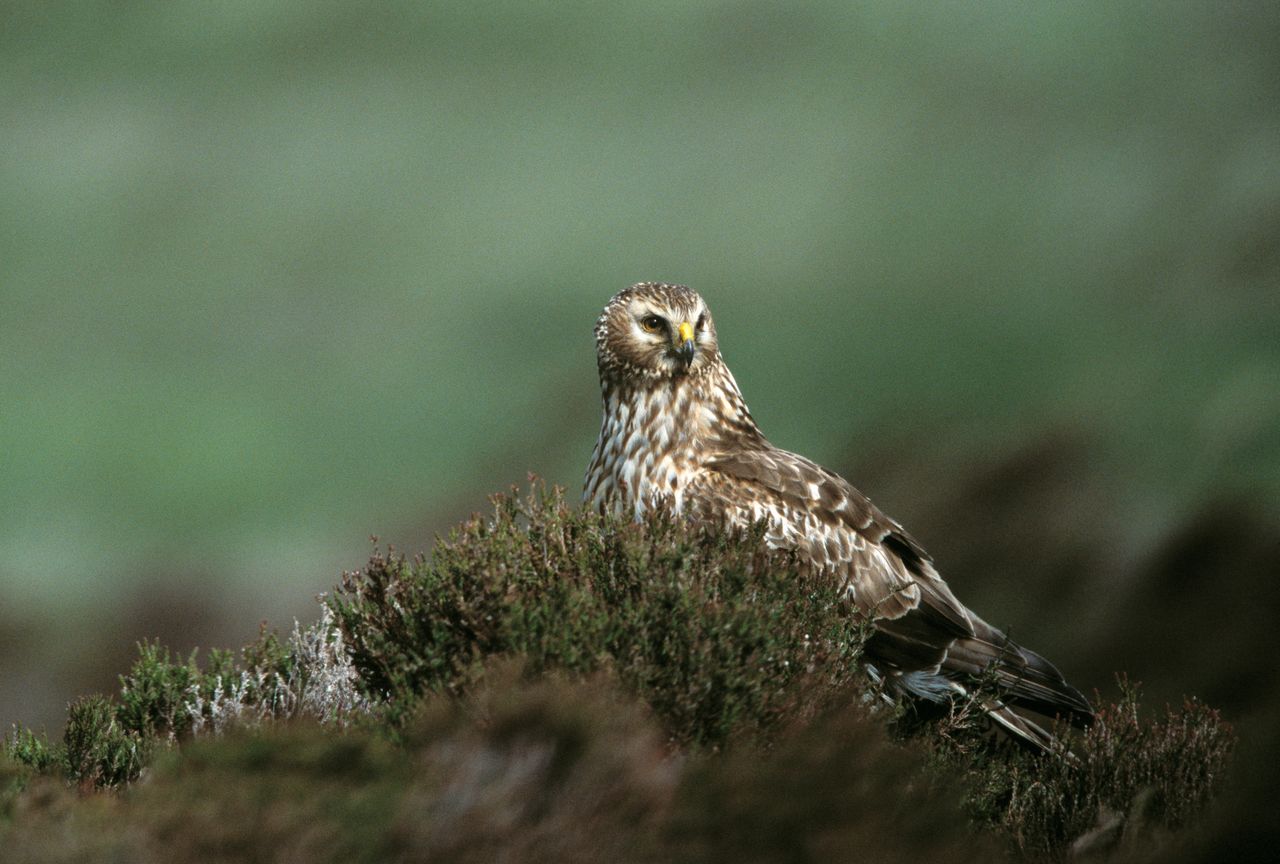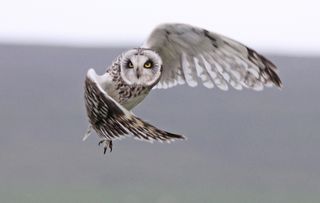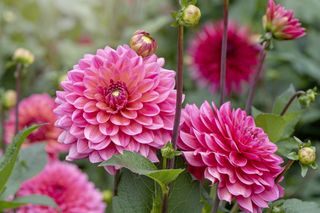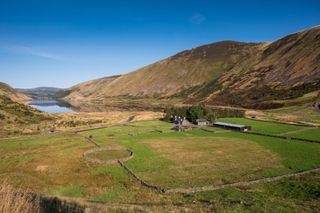Dawn Chorus: Boost for Orkney wildlife, strange plants to eat and curious lodgings at the COP conference
Plus the quiz of the day.


Orkney RSPB
It’s not all bad news in the world of nature conservation. Orkney’s wildlife, which includes several threatened bird species and the endemic vole, is showing signs of recovery, according to the RSPB.
The success is as a result of the Orkney Native Wildlife Project, which has spent the past four years attempting to protect nationally important bird and small mammal communities found on the islands. Most notably, this involves removing stoats, which prey on ground nesting birds and the voles.
The stoat removal program is the first of its kind in the Northern Hemisphere, and the largest anywhere in the world. After four years, there are ‘significant increases in successful nesting attempts of ground nesting birds such as the hen harrier and rare waders’. More than 6,000 stoats have been removed.

‘This is a success story for conservation against the backdrop of a nature crisis that is pushing more of Scotland’s wildlife to the brink. Working in partnership on the biggest project of its kind ever attempted we are restoring the natural balance to Orkney,’ says Anne McCall, RSPB Scotland director.
‘The accidental introduction of stoats to the islands has had a devastating effect on our wildlife, especially smaller mammals and ground nesting birds. Today’s report is a strong indication that our work is making a difference.’
However, the work is not finished yet. Some stoats still remain, and the project hopes to see the invasive species removed entirely from the islands.
Copping off at the Climate summit

The 2024 United Nations Biodiversity Conference of the Parties to the UN Convention on Biological Diversity, or COP16 for short, is currently underway in Cali, Colombia, seeing an influx of visitors and delegates from all over the world. One such is Robert Baluku, a Ugandan delegate, who has ended up in a ‘love motel’ replete with sex swings, dance poles and mirrored ceilings after the city’s more orthodox hotels were full.
Sign up for the Country Life Newsletter
Exquisite houses, the beauty of Nature, and how to get the most from your life, straight to your inbox.
Speaking to the Guardian, another delegate named Aggrey Rwetsiba, also from Uganda, said: ‘I’m not sure whether I’ve got the full understanding of what a motel should be, but I have seen some unique features… like the mirror on the ceiling. I have never seen [that] in a hotel.’
It’s an amazing story, reported masterfully by Phoebe Weston. Read the whole thing here.
Quiz of the day
1) What is the name of the hooked staff carried by a bishop?
2) Hippophobia is a fear of what?
3) What was Agent Orange, deployed by the USA during the Vietnam War?
4) Who was the Greek god of dreams?
5) Nacre is more commonly known as what?
Edible plants
Have you ever munched on a roasted dahlia tuber or spread fuchsia-berry jam on your toast? Probably not, but as gardeners rake in the rewards from their vegetable patches this autumn, the RHS is keen to point out that plenty of seemingly ornamental plants are being overlooked that can provide a diverse diet.
‘Many people know about edible flowers… such as violas, geraniums and elderflower,’ says Liz Mooney, horticulturalist at RHS Garden Wisley, ‘but did you know you can eat berberis and fuchsia berries, day-lilies, dahlia tubers, hosta, sea kale and mahonia?’

These ‘edimentals’ (edible and ornamental plants) kill two birds with one stone, in allowing gardens, notably smaller ones, to be both attractive and sustaining. The charity has provided a helpful list; for example, the shoots, leaves and flowers of lilies (Lilium) can be eaten and the bulbs cooked as a potato substitute, pot marigold (Calendula officinalis) tastes peppery in soups, stews and puddings, alpine pinks (Dianthus) add a clove-like flavour to cakes, alliums are garlicky/oniony and wisteria blossoms can be sweet and nutty.
‘I wouldn’t know much about whether specific plants are nutritionally beneficial,’ notes Country Life contributor Mark Diacono, ‘but one thing is for sure — the greater the diversity of plants we eat, the happier our gut microbiome is and research shows that the positives from that include everything from improved digestion to better mental health.’
‘Edimental plants are a beautiful and easy way to grow food,’ adds Sheila Das, Wisley garden manager. ‘However, take care: accurate identification of flowers and plants is essential. If in doubt, don’t eat it.’ You can find help with identification on the RHS website or members can contact RHS Gardening Advice.
Evening Shower Over the Needles

Jamie Russell of the Isle of Wight took advantage of the sea and the air to capture this Evening Shower Over the Needles. This photograph came third in the main title category of the Standard Chartered Weather Photographer of the Year competition, the winners of which are out now. The rest of the results can be viewed at the Royal Meteorological Society’s website.
Get lost in the Borders

On a monday morning, or any weekday morning to be honest, it can be easy to dream of packing it all in and moving to the middle of nowhere in Scotland as the alarm buzzes away. If you felt like turning that dream into a reality, a good place to start would be Talla Farm.
That's it for today, see you tomorrow
Quiz answers 1) Crozier 2) Horses 3) A herbicide/defoliant 4) Morpheus 5) Mother-of-pearl

Credit: Getty Images
The Dawn Chorus: A goose and its conker, naked rollerskating nuns and a £4.2 million bronze buck
Plus, a koi massacre blamed on otters and the property of the day.

James Fisher is the Deputy Digital Editor of Country Life. He writes about property, travel, motoring and things that upset him. He lives in London
-
 If the future of Ferrari is electric vehicles, then it is our future too
If the future of Ferrari is electric vehicles, then it is our future tooIt's widely believed that Ferrari will unveil its first electric car this year. It's the signal that the internal combustion era is coming to an end.
By James Fisher Published
-
 Gaze over Cap Ferrat in this four-bedroom French villa
Gaze over Cap Ferrat in this four-bedroom French villaIgnore the wind and the rain. Imagine yourself in this hillside home with some of the best views the Mediterranean can offer.
By James Fisher Published